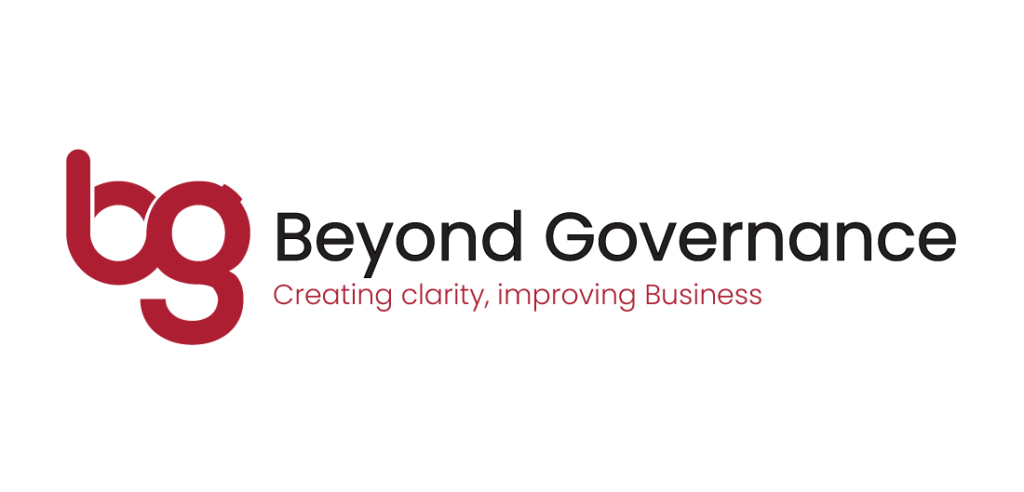Introduction
While it is true that directors are often concerned with factors such as their reputation, salary, and financial performance, it is an oversimplification to say that these are their sole concerns. Directors have a fiduciary duty to act in the best interests of the company and its shareholders, which goes beyond personal gains and includes considerations of long-term sustainability, ethical behaviour, and corporate governance. Whist some may argue that directors remain self-interested, it can be shown that this is no way to build and grow a successful organisation. Here are some key points to consider:
Reputation
Mary Barra, General Motors
Directors have a keen understanding of the critical importance of safeguarding the reputation of both themselves and the organisations they serve. For example, Mary Barra, CEO of General Motors (GM), exemplifies this through her actions. Barra’s commitment to the safety of GM’s customers and the integrity of the brand was evident when in 2014 she transparently addressed safety issues involving faulty ignition switches that had led to numerous accidents. Instead of shying away from this damaging situation, Barra took responsibility, apologised publicly, and implemented comprehensive plans to rectify the issue, demonstrating that she valued the company’s reputation over short-term financial considerations.
Volkswagen Emission Scandal
An organisation’s reputation, once tarnished, can lead to significant negative implications. Loss of trust from stakeholders, investors, and the general public can seriously damage operations and long-term growth prospects. One pertinent example is the Volkswagen emission scandal in 2015. When it was revealed that Volkswagen had installed software in their cars to cheat on emission tests, it resulted in an enormous loss of trust. The company’s reputation plummeted, billions of pounds were wiped off its market value, and sales dropped considerably. This case reinforces the critical role directors play in steering clear of deceptive practices, thereby preserving the company’s reputation and ethical standing. Ultimately, directors should be motivated by the understanding that maintaining a strong corporate reputation is a cornerstone of sustainable business success and is in their personal best interests too.
Salary and Finances
Indra Nooyi, PepsiCo
While personal compensation is a factor for directors, it is often secondary to the broader financial health of the company they serve. A notable example of this is found in the leadership of Indra Nooyi, the former CEO of PepsiCo. When she took the helm in 2006, amidst substantial financial challenges, she made bold decisions to secure the company’s future, rather than focusing solely on her personal financial gains. Nooyi championed the “Performance with Purpose” initiative, which sought to make PepsiCo a more environmentally friendly and health-conscious brand. While initially, the shift towards healthier products was met with scepticism, it led to robust growth for the company in the long term. This case exemplifies how directors, such as Nooyi, view their role in a much larger context than personal financial gain, by prioritising the financial sustainability and future growth of the organisation.
Enron Scandal
However, there can be instances where directors’ decisions are predominantly driven by personal financial considerations, leading to adverse outcomes. A stark example of this is the infamous Enron scandal. The company’s top executives, swayed by their own financial interests, manipulated the company’s accounts, overlooking the financial stability and broader interests of the company and its stakeholders. The eventual collapse of Enron resulted in devastating financial losses and lasting reputational damage for the directors involved. This highlights the potential negative impacts when directors place their personal financial gain over the long-term financial health and ethical standards of the organisation they serve.
Legal Compliance
Ken Frazier, Merck & Co.
Directors bear the legal responsibility of ensuring the organisation operates within applicable laws and regulations. Their actions significantly affect both their personal credibility and the company’s reputation. One laudable example can be found in the leadership of Ken Frazier, CEO of Merck & Co. known for his high ethical standards. Frazier championed strict legal compliance and was not afraid to make tough decisions to protect the integrity of the company. For instance, when Merck faced a potentially costly product liability issue concerning their painkiller Vioxx, Frazier, then general counsel, opted for transparency and recommended the withdrawal of the drug from the market, protecting the company from further legal issues and reputational damage.
Theranos Scandal
On the other hand, disregard for legal compliance can lead to severe ramifications. The case of Theranos, led by CEO Elizabeth Holmes, is a prime example. Holmes and former president Ramesh “Sunny” Balwani were accused of misleading investors about the capabilities of their proprietary blood testing technology. When the truth was uncovered, Theranos faced multiple lawsuits from investors and patients, leading to its dissolution in 2018. The fallout was substantial; Holmes and Balwani faced criminal charges, and the reputations of both individuals and the company were irrevocably tarnished. This case underscores the essential role that legal compliance plays in protecting the company’s reputation and maintaining the trust of its stakeholders.
Stakeholder Management
Satya Nadella, Microsoft
Effective stakeholder management is a crucial aspect of a director’s responsibilities. Directors are tasked with the delicate balance of considering the interests of various parties, including shareholders, employees, customers, suppliers, and the community, and aligning these with the strategic objectives of the organisation. An example of this in action is with Satya Nadella, CEO of Microsoft. Nadella has been lauded for his successful stakeholder management and efforts to transform Microsoft’s culture. He prioritised open communication, encouraged collaboration, and placed an emphasis on learning and innovation. This approach not only revitalised employee morale but also resulted in significant business growth and boosted shareholder value. Nadella’s leadership showcases how effective stakeholder management can create a win-win situation for all involved parties.
BP Deepwater Horizon
Conversely, failure to effectively manage stakeholder relationships can have significant consequences, as observed in the case of BP’s Deepwater Horizon oil spill in 2010. The disaster resulted from prioritising cost-cutting and profits over safety concerns raised by their employees, leading to a devastating environmental catastrophe. The fallout was extensive: the company faced massive lawsuits, fines, and severe reputational damage. BP’s shareholders suffered significant losses as the company’s market value dropped by over 50% in the aftermath. The case of BP serves as a sobering reminder of the consequences when stakeholder management is mishandled, particularly when the focus is skewed towards short-term gain at the expense of long-term stability and reputational integrity.
Corporate Governance
Directors play a pivotal role in instituting and upholding effective corporate governance within an organisation, often with the assistance of a skilled governance professional. Their role encompasses stewarding the strategic direction, managing risk, overseeing financial reporting, and ensuring legal compliance. Effective corporate governance cultivates transparency, accountability, and ethical conduct, all crucial for sustainable success.
Larry Page and Sergey Brin, Google/Alphabet Inc
A notable example of this is Google’s parent company, Alphabet Inc. Larry Page and Sergey Brin, co-founders of Google, implemented robust corporate governance practices that have contributed to the company’s global success. Alphabet Inc.’s commitment to transparent financial reporting, ethical conduct, and strategic decision-making has fostered trust with investors, employees, and users worldwide, propelling it to become one of the world’s most valuable companies.
Toshiba
On the other hand, poor corporate governance can lead to significant complications. The case of Toshiba offers a cautionary tale in this regard. The Japanese conglomerate faced a massive scandal when it was discovered in 2015 that they had overstated profits by over $1.2 billion over seven years. The scandal revealed significant corporate governance failings, including weak internal controls and a corporate culture that discouraged dissent. The fallout was immense: Toshiba’s CEO and several board members had to resign, the company faced a significant financial crisis, and its reputation was severely damaged. The Toshiba case underscores the potential pitfalls of neglecting good corporate governance practices and serves as a stark reminder of the vital role directors play in upholding these standards.
In summary…
The good…
The role of a director is multifaceted, encompassing far more than mere self-interest or personal financial gain. Navigating the challenges of stakeholder management, legal compliance, corporate governance, and reputation management requires an intricate balancing act that prioritises the sustainable success of the organisations director serve. Directors who rise to the occasion, like Mary Barra, Indra Nooyi, Ken Frazier, and Satya Nadella, champion the cause of their respective companies, leading with vision, accountability, and a steadfast commitment to their core values. They acknowledge the long-term view, understanding that a company’s success is their success.
The bad…
However, when directors lose sight of their broader responsibilities, as seen in cases like Volkswagen, Enron, Theranos, BP, and Toshiba, the results can be devastating. The consequences of such missteps – whether legal repercussions, loss of trust, financial decline, or a tarnished reputation – offer a stark reminder of the importance of adhering to the principles of good governance, ethical conduct, and responsible leadership.
Conclusion
In essence, directors are, or should be, heavily invested in their businesses, acknowledging their roles as stewards whose decisions impact the very fabric of the organisations they serve. Their commitment should go beyond their personal gains, and drive the collective success of their teams, stakeholders, and indeed, the business at large. The top directors understand that when the company succeeds, they succeed too.




